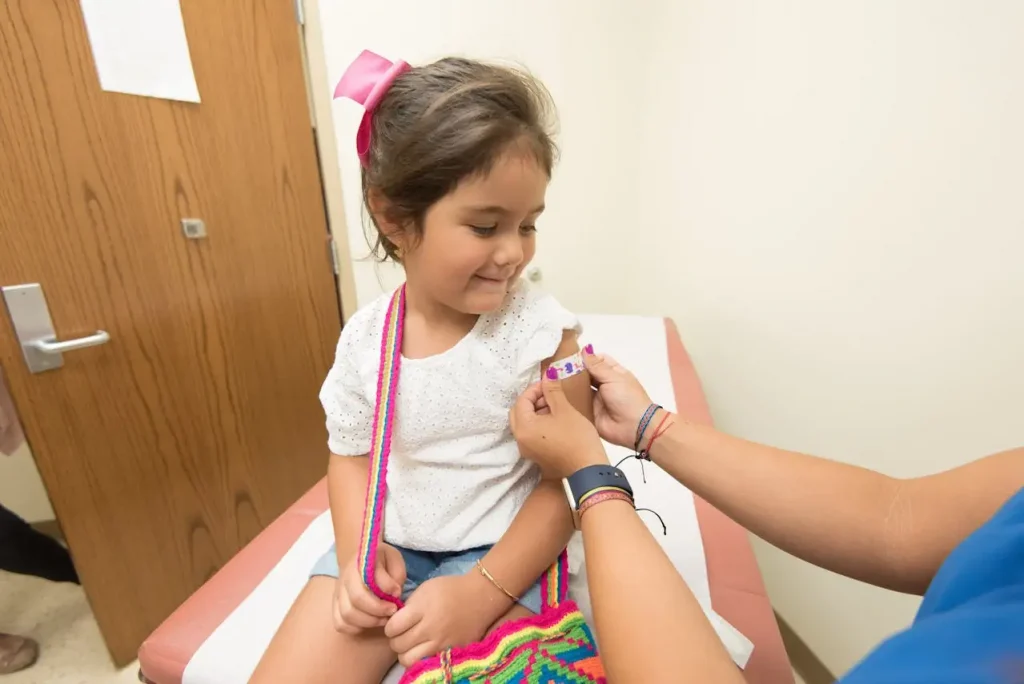Vaccinating Children: Understanding the Essentials

As parents, we make countless decisions every day that affect the health and well-being of our children. One of the most important choices we face is whether to vaccinate them. Vaccinations play a critical role in preventing the spread of contagious diseases and protecting our little ones from potentially life-threatening illnesses. In this article, we will delve into the essentials of vaccinating children, providing you with the knowledge and understanding you need to make informed decisions.
The Importance of Childhood Vaccinations
Childhood vaccinations have been hailed as one of the most significant achievements in public health. They have helped eradicate diseases like polio and drastically reduce the incidence of others, such as measles and whooping cough. Vaccinations not only protect our children but also contribute to the overall health of the community. By achieving high vaccination rates, we create a shield of protection, known as herd immunity, that prevents the spread of diseases to those who are unable to receive vaccines due to medical reasons.
Despite these benefits, there has been a rise in vaccine hesitancy in recent years. Some parents have concerns about the safety and efficacy of vaccines, often fueled by misinformation and misconceptions. It’s important to separate fact from fiction and make decisions based on reliable scientific evidence. Let’s explore some of the common misconceptions about vaccinations.
Common Misconceptions about Vaccinations
Misinformation about vaccines can be found in various sources, from social media to well-meaning but ill-informed friends and family members. One common misconception is the belief that vaccines cause autism. However, extensive research conducted by reputable scientific organizations has repeatedly debunked this claim. Vaccines are rigorously tested for safety before they are approved for use, and the evidence overwhelmingly supports their safety and effectiveness.
Another misconception is the idea that natural immunity acquired through infection is superior to vaccine-induced immunity. While natural infection can provide immunity, it also carries the risk of severe complications and even death. Vaccines offer a safe and controlled way to build immunity without the risks associated with contracting the actual disease. It’s crucial to understand the science behind vaccines to make informed decisions.
The Science Behind Vaccines
Vaccines work by stimulating the immune system to recognize and fight specific pathogens. They contain weakened or inactivated forms of the disease-causing microorganism or pieces of it, known as antigens. When these antigens are introduced into the body, the immune system mounts a response, producing antibodies that recognize and neutralize the pathogen. This immune response creates memory cells that “remember” the pathogen, providing long-term protection against future infections.
Vaccines undergo rigorous testing and are subject to strict regulatory processes to ensure their safety and effectiveness. The development of vaccines involves years of research, clinical trials, and monitoring to assess their efficacy and potential side effects. The scientific consensus overwhelmingly supports the use of vaccines as a safe and effective way to prevent infectious diseases.
Recommended Vaccination Schedule for Children
To maximize the benefits of vaccines, it’s crucial to follow the recommended vaccination schedule for children. This schedule, developed by healthcare experts, outlines the age at which each vaccine should be administered. Vaccines are typically given in multiple doses to ensure optimal protection. By adhering to the schedule, we can protect our children from diseases at the most vulnerable stages of their lives.
The recommended vaccination schedule includes vaccines for diseases like measles, mumps, rubella, diphtheria, tetanus, pertussis, polio, hepatitis, and more. It’s essential to consult with your child’s healthcare provider to ensure they receive all the necessary vaccines at the appropriate times. Vaccines are a crucial component of preventive healthcare, and by staying up to date with the schedule, we can provide our children with the best possible protection.
Benefits and Risks of Childhood Vaccinations
Vaccines offer numerous benefits, not only to the individual but also to the community. By preventing diseases, vaccines reduce the burden on healthcare systems, decrease healthcare costs, and improve overall public health. Vaccines have been instrumental in eliminating or reducing the incidence of devastating diseases that once caused significant morbidity and mortality.
While vaccines are generally safe, like any medical intervention, they carry some risks. Adverse reactions to vaccines are rare but can occur. These reactions are typically mild, such as a localized soreness or low-grade fever, and resolve quickly. Serious side effects are extremely rare and often outweighed by the benefits of vaccination. It’s important to discuss any concerns or potential risks with your child’s healthcare provider.
How Vaccines Protect Individuals and Communities
Vaccines not only protect individuals who receive them but also contribute to community immunity. When a significant portion of the population is vaccinated, the spread of diseases is significantly reduced, preventing outbreaks and protecting those who can’t receive vaccines due to medical conditions. This concept of herd immunity is particularly crucial for vulnerable populations, such as infants, the elderly, and individuals with weakened immune systems.
The effectiveness of vaccines in preventing diseases is evident in the decline of once-common illnesses. Smallpox, for example, has been eradicated globally through vaccination efforts. Measles, which was once a leading cause of death among children, has seen significant reductions in incidence due to widespread vaccination. Vaccines are a powerful tool in the fight against infectious diseases.
Addressing Vaccine Hesitancy
Vaccine hesitancy is a complex issue influenced by various factors, including misinformation, fear, and lack of trust in healthcare systems. Addressing vaccine hesitancy requires a multifaceted approach that includes education, open dialogue, and trust-building. Healthcare providers play a crucial role in addressing concerns, providing accurate information, and addressing misconceptions.
By addressing vaccine hesitancy, we can ensure that more children receive the protection they need against preventable diseases. It’s important to approach vaccine discussions with empathy and understanding, acknowledging concerns while providing evidence-based information. Open and respectful conversations can help bridge the gap and increase vaccine acceptance.
The Role of Healthcare Providers in Promoting Vaccinations
Healthcare providers play a vital role in promoting vaccinations and improving vaccine acceptance rates. They are trusted sources of information and can address concerns, answer questions, and provide guidance. Providers can educate parents on the benefits and risks of vaccines, explain the science behind immunization, and address common misconceptions.
Additionally, healthcare providers can advocate for policies that support vaccination efforts, such as public health campaigns and school immunization requirements. By working together, healthcare providers, parents, and communities can create a culture that values and prioritizes vaccination as a crucial aspect of preventive healthcare.
Vaccine Safety and Research
Vaccine safety is a top priority for healthcare providers, researchers, and regulatory agencies. Vaccines undergo rigorous testing and monitoring before, during, and after their approval to ensure their safety and effectiveness. Adverse events are carefully monitored and investigated to maintain public trust and confidence in vaccination programs.
Research on vaccines is an ongoing process. Scientists continuously study vaccines to monitor their long-term safety, assess their efficacy against emerging strains, and develop new vaccines to combat evolving diseases. The scientific community is dedicated to providing the most accurate, up-to-date information on vaccines to support informed decision-making.
Conclusion: The Importance of Vaccinating Children for a Healthier Future
Vaccinating children is a critical step in protecting their health and the well-being of the community. Vaccines have proven to be safe and effective in preventing diseases that once caused significant suffering and death. By understanding the science behind vaccines, debunking myths and misconceptions, and following the recommended vaccination schedule, we can provide our children with the best possible protection.
Addressing vaccine hesitancy requires open dialogue, trust-building, and access to accurate information. Healthcare providers play a crucial role in promoting vaccinations and addressing concerns. By working together, we can ensure a healthier future for our children, free from preventable diseases. Let’s embrace the science behind immunization and make informed choices that protect our children and the community as a whole.
Remember, vaccination is not just a personal choice; it’s a responsibility we have towards our children and society. Let’s continue to prioritize the health and well-being of our little ones through vaccination. Together, we can create a safer, healthier future.


